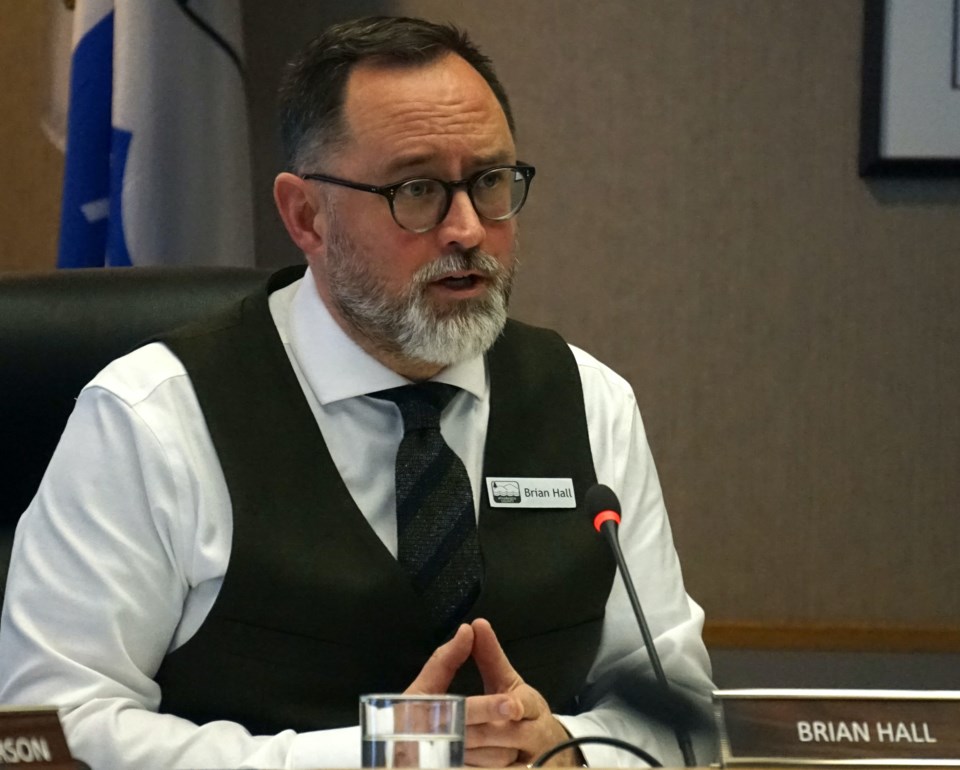ATHABASCA — Athabasca County councillors have expressed “extreme disappointment” in the province’s recent decision to eliminate a taxation program that allows municipalities to collect one-time fees from new oil and gas wells and pipelines.
County Reeve Brian Hall read a prepared statement to fellow county councillors during their Jan. 9 regular meeting, orating a passionate stance on how the government’s choice to repeal the Well Drilling Equipment Tax Rate Regulation (WDET) will affect rural municipalities like Athabasca County.
“The past few years have undoubtedly been some of the most challenging in Alberta’s history. As a result of events and circumstances beyond our control, we’ve wrestled with a range of challenges, including the greatest public health crisis in our lifetimes and low oil and gas prices,” read Hall.
In late 2020, a decision to set the WDET at $0 was made by the provincial government in addition to other tax incentives to help boost the provincial economy. The tax break was designed to encourage oil and companies to keep equipment in the province — a move Hall called justifiable at the time, but now said has been “a serious thorn in (his) side.”
“One of the hardest hits to municipal coffers came in December 2020 with the repeal of the WDET,” read Hall’s statement. “While the loss of this critical stream of revenue hurt, we understood the reasoning behind the move — to encourage investment in oil and gas developments during an economic slowdown.”
But after receiving a Dec 22. letter from Minister of Municipal Affairs Ric McIver stating the province's intention to eliminate the tax rather than reinstating it after the 2024 tax year, Hall and fellow county councillors expressed concern for where this decision leaves their — and other — municipalities.
According to a Rural Municipalities of Alberta (RMA) resolution from a conference that took place in November 2022, 54 wells were drilled in Athabasca County in 2021, a significant increase compared to the previous years. In 2018, only one well was drilled, and in 2020, that number jumped to 11.
“Assuming that the WDET is assessed at the last regulated rate, the 54 wells drilled would have resulted in more than $430,000 in income to Athabasca County in 2021,” reads the RMA resolution background information.
Hall said this loss of earnings compounds with other costs the provincial government have placed on municipalities, such as the increase in RCMP retroactive pay. “It’s a significant bite in our budget. At the same time, they took away our revenue stream, they’ve downloaded other costs, so they’re coming at us from both sides.”
Councillors voted unanimously to, “send a letter to Minister McIver expressing our extreme disappointment that the province is continuing to offer economic incentives to oil companies on the backs of rural Alberta and rural municipalities.”
The motion also directed the letter be sent to Minister of Energy and Minerals Brian Jean, local MLA Glenn van Dijken, and all members of RMA.
Coun. Rob Minns voiced his opinion on the matter. “I was honestly very upset,” said Minns about the province's decision to repeal the tax.
He cited RMA’s efforts to advocate on behalf of Athabasca County and other RMA members. The previously mentioned resolution, put forward by Athabasca County, has been given a status of “intent not met,” and RMA indicated further advocacy efforts would be pursued.
“To have it just thrown in our face again, saying, 'No, we’re not doing it,' I take that as a big slap,” said Minns.
“There doesn’t seem to be any justification in any way, shape, or form for any type of financial assistance, because the oil companies have never been more liquid than they are now. It’s inexcusable,” said Coun. Joe Gerlach, who said he recalls when companies first began drawing from oil sands.
Coun. Gary Cromwell also spoke up, informing fellow councillors of a potential well site north of Wandering River involving horizontal drilling under privately-owned land, which he said has caused, “a lot of upset.”
“Municipalities have borne the brunt of the downloading of provincial costs,” wrote Hall. “With the Government of Alberta’s support, municipalities and energy companies can become partners in prosperity, building stronger, more resilient communities for today and tomorrow.”



